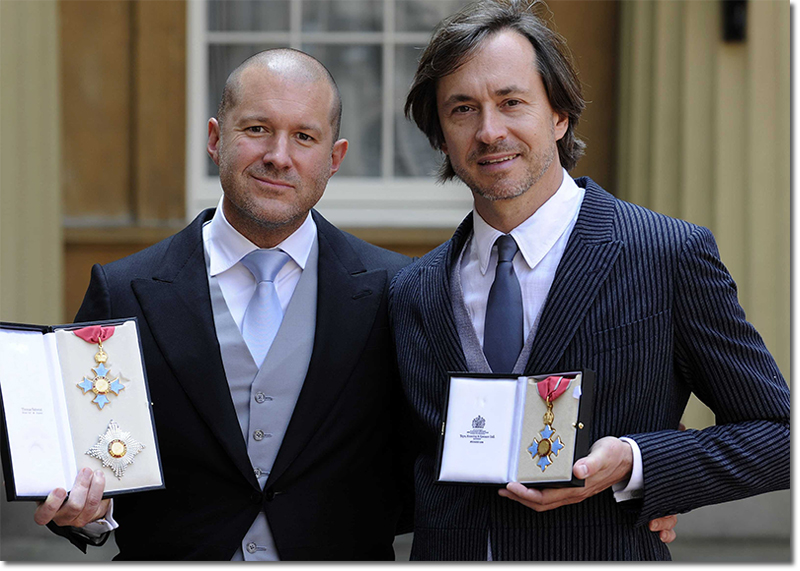The Fantastic Apple Car Is a Fantasy

Forget the iWatch, Apple Pay, and the iPhone 7…the next big thing from Cupertino will be the Apple Car.
At first, I didn’t pay much attention to the Apple Car rumors.
I saw them as the another wave of clickbait along the lines of the wiped-out Apple Television Set canards.
I even thought of writing a little parody piece:
WinCar, Microsoft Disrupts The Auto Industry.
After penetrating offices and homes, Microsoft will now hitch a ride in the third most important location (and time slice) in peoples’ lives: The Car.
As part of Satya Nadella’s Mobile First – Cloud First vision, the Azure-enabled WinCar is the ultimate personal mobility and connectivity device. Quoting Nadella’s July 10th message to the troops:
“We will think of every user as a potential ‘dual user’ – people who will use technology for their work or school and also deeply use it in their personal digital life.
[…] Microsoft will push into all corners of the globe to empower every individual as a dual user – starting with the soon to be 3 billion people with Internet-connected devices. And we will do so with a platform mindset. Developers and partners will thrive by creatively extending Microsoft experiences for every individual and business on the planet.”
Microsoft’s connections to the auto industry are old and obvious: Steve Ballmer’s father was a manager at Ford; Microsoft wrote successive generations of Sync, Ford’s dashboard infotainment system; Dr. Helmut Panke, an illustrious auto industry figure and former Chairman of BMW’s Board of Management, sits on Microsoft’s Board of Directors. Bill Gates drives a Ford Focus. Ballmer? He’s a Ford Fusion man...
No.
As I saw the growing stream of Apple Car tweets and blog posts, two minutes of research took me to what seems to be the source of the reverberating fracas, a single Wall Street Journal story titled Apple Gears Up to Challenge Tesla in Electric Cars; iPhone Maker Has 100s Working on Design of a Minivan Like Vehicle. The article tells us that the project, code named “Titan”, is being shepherded by Steve Zadesky, a former Ford engineer who “helped lead the Apple teams that created the iPod and iPhone” — two products that have many, many fathers.
Most of the echoes of the rumor emanate from that one story. The Financial Times’ Apple hiring automotive experts to work in secret research lab isn’t much more than a rewrite. The always “reliable” Business Insider tells us that Tesla and Apple are poaching each other’s engineers and throws in a quote from an unnamed Apple employee: “We’re working on something that will give Tesla a run for its money”. A Mac Observer post tells us that they have it on good authority from someone who “travels in more rarefied circles” that “a lot of people at the top in Silicon Valley consider it a given that Apple is working on a car”.
The posts and reposts are quick to find “evidence” that back up the rumors. Apple’s Sr. VP Eddy Cue, who sits on Ferrari’s Board (a fact that’s omitted from Cue’s official bio), has long been a conduit between choice automobiles and highly paid company engineers and executives. Apple recently hired Johann Jungwirth, former president and chief executive of Mercedes-Benz Research and Development North America. Recent sitings of Apple’s mysterious unmarked vans fitted with a dozen cameras proves they’re building an autonomous vehicle.
The picture wouldn’t be complete without a juicy link to complaints about American cars by “design god” Jony Ive and no less divine watch designer Marc Newson, who says that American car design is on the “shit we hate” list.

Sir Jonathan Ive, Senior Vice President, Industrial Design, Apple Inc poses with his Honour of Knighthood and designer Mark Newson (right) poses with his Commander of the British Empire (CBE) medal following an Investiture ceremony hosted by the Princess Royal, at Buckingham Palace, on May 23, 2012 in London.
(Let’s give ourselves a moment of contemplation, here. These two august industrial artists come from Britain, whose auto industry is now either German or Indian. Bentley, Sir Jony’s choice, is owned by Volkswagen; Rolls Royce is a subsidiary of über Bavarian BMW; Jag-ü-ar and Land Rover are in the competent hands of the Tata conglomerate.)
Just as in the little Microsoft parody above, the signs are unmistakable, Apple is definitely making a car.
Let’s count the ways….
The company has the money. With $178B in the bank, it could easily afford to build a car factory. The cost of doing so, a couple billion, is certainly less than the price of a microprocessor fabrication unit where costs approach $10B. And the company is no stranger to large industrial bets. As Horace Dediu notes, Apple spent close to $4B in Machinery and Equipment in the quarter preceding the launch of the latest iPhone; for the latest quarter, spending of more than $3.2B is 60% higher than a year before. As Horace tells us, large increases in Machinery and Equipment spending presage big product launches – which is a little besides today’s topic:
Short of building everything from the ground up, perhaps Apple is going to buy their way in. Why not acquire Tesla and enjoy a running start? Tesla’s market cap of $26B makes it an affordable acquisition. The current Model S is, in several ways, the first Silicon Valley car, built nearby in Fremont, with a modern touch-based UI, autopilot features, and regular over-the-air software updates.
An Apple car would almost certainly be out of many drivers’ budgets, but let’s recall that Apple has a history of disrupting from the top. They took over the MP3 player market and the smartphone industry by providing a more expensive product and carefully building an ecosystem of software, content, services, and retail operations that deliver user experiences that, in turn, generate higher margins. And as car technology matures, Moore’s Law will help drive down prices.
But now let’s look at the reality.
Yes, Apple has plenty of money, but the century-old auto industry doesn’t seem like a good way to make more of it. Ford, the healthiest US car company, made $835M in net income last quarter, less than 4% of their $34B in sales. Compare that number to Apple’s record-breaking $18B profit. Tesla, Apple’s supposed rival in the fantasy blogs, pulled in a little less than $1B last quarter, and it lost about 10% of that. There isn’t an inkling of an explanation for why and how a superior product designed and built by Apple would bring superior returns.
Furthermore, there is no Moore’s Law for cars. In a Tesla Model S, the computers are a small part of the bill of materials. Batteries, which contribute the most to the price, don’t double in power or halve in cost every 18 months.
A simple chart by Benedict Evans sheds light on the opportunities before us:

The sort of money that apple has come to expect just isn’t in cars.
An autonomous car is good PR and to some it may seem like an inevitability, but as Lee Gomes, a former tech writer for the Wall Street Journal, explains in this Slate piece: The autonomous Google car may never actually happen. This isn’t because Google engineers are incompetent, but because actual, in-the-wild autonomous driving is fraught with countless intractable exceptions. What happens in heavy rain or snow, or when the software behind the camera has trouble recognizing objects that are blown onto the road? What happens when your car approaches a a last minute detour around new construction site?
Apple’s life today is relatively simple. It sells small devices that are easily transported back to the point of sale for service if needed. No brake lines to flush, no heavy and expensive batteries and cooling systems, no overseeing the installation and maintenance of home and public chargers. And consider the trouble Tesla faces with entrenched auto dealers who oppose Tesla selling cars directly in some states. Apple doesn’t need these headaches.
There is a simpler and regrettably less grand explanation for the rumors.
Johann Jungwirth, the Mercedes Benz R&D exec that Apple hired last September, worked on infotainment systems, which makes him a natural for Apple’s work on CarPlay. The mystery vans are most likely part of the company’s Maps product.
Apple has made a commitment to better in-car systems, not in and for themselves in isolation, but as a reinforcement of the iOS ecosystem. If the large number of engineers that they’ve “poached” from Tesla seems a bit much, consider again the enormous size of iPhone (and iPad) revenue for this past quarter: $60B – compared to GM’s $40B for the same period. To Apple, anything that helps the iOS ecosystem is well worth what looks like oversized investments to outsiders.
Cars have always excited humans, they are a way to extend the reach of our bodies. As Roland Barthes once said about the Citroën DS 19 [emphasis mine]:
“I think that cars today are almost the exact equivalent of the great Gothic cathedrals; I mean the supreme creation of an era, conceived with passion by unknown artists, and consumed in image if not in usage by a whole population which appropriates them as a purely magical object.”
An Apple car feels good: design, quality, service, trust. A winner. I’ll buy two. It’ll work because it’d be really great if it did… but a small matter of implementation – actually the larger Moore’s Law intrudes.
The fantastic Apple Car is a fantasy.
Source: Monday Note
About the Author

Jean-Louis Gassée is currently general partner at the venture capital firm Allegis Capital since 2003. In late 1990, he founded Be, Inc., a multi-media system software company, took it to the Nasdaq in 1999 and sold it to Palm in 2001. Jean-Louis started Apple France in 1981, moved to Cupertino, California in 1985 and became president of the Apple Products Division, covering worldwide product development, manufacturing and product marketing. He has served as a director of publicly traded companies such as Cray Computer Corporation, 3Com and Logitech. He currently sits on the Board of Directors’ of Electronics for Imaging and was until late 2005 Chairman of PalmSource. He is a Mathematics and Physics graduate of Paris (Orsay). He lives in Palo Alto, California.
Article Topics
SupplyChainOpz News & Resources
Is Apple Working on a Trump Contingency Plan? A Case Study of Apple Computer’s Supplier Hubs: A Tale of Two Cities The 7 Principles of Supply Chain Management Samsung’s Galaxy Note 7 Supply Chain on Fire Google Overtakes Apple as Most Valuable Company Apple Suppliers Hope to Tap Into New ‘3-D Touch’ Apple iPhone Sales Slack Says Supply Chain Leak More SupplyChainOpzLatest in Technology
The Top 10 Risks Facing Supply Chain Professionals Walmart’s Latest Service: Ultra Late-Night Delivery South Korea Finally Overtakes China in Goods Exported to U.S. SAP Unveils New AI-Driven Supply Chain Innovations U.S. Manufacturing is Growing but Employment Not Keeping Pace The Two Most Important Factors in Last-Mile Delivery Spotlight Startup: Cart.com is Reimagining Logistics More Technology















